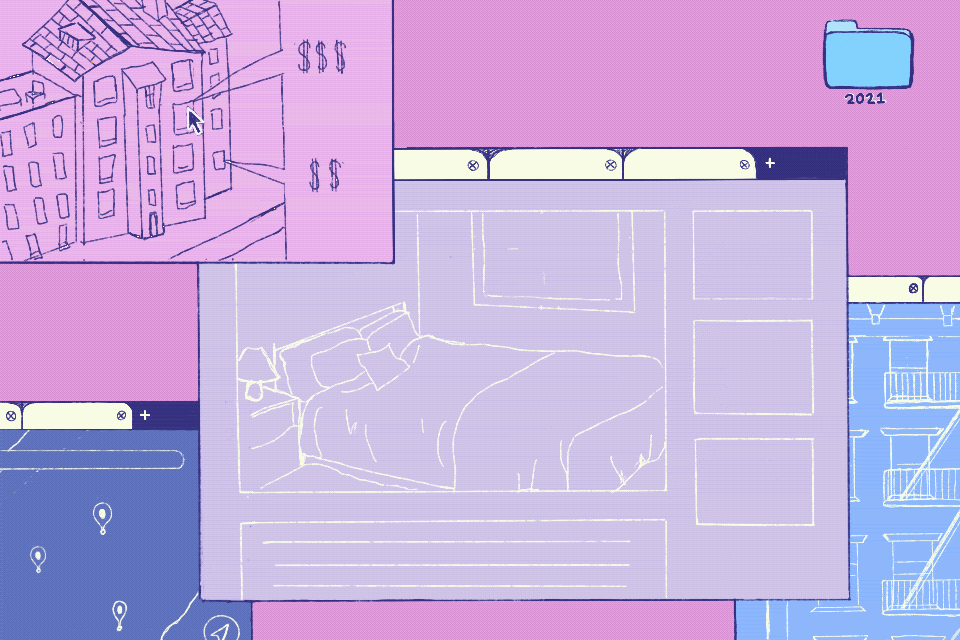As a university or college student, many factors come into play that can help make your four years at the university a success. One of these is your home away from home: your chosen student housing.
Unlike the usual regular rentals or apartments, housing facilities tailored explicitly for the students allow you to mingle and interact with other students. This is very beneficial to keep you sane throughout your stay in the university. No man is an island, and certainly not so when you should be having the time of your life during your university years.
But, before enjoying all these, the thing about student housing is that choosing the right one is often easier said than done. There are so many to choose from, and if you don’t know where and how to start, you may only get overwhelmed by all of the choices.
Finding suitable accommodation is one of the most significant decisions you’ll make, alongside your move to the university. This can be quite a task, so here’s a compilation of some of the most important considerations you’ll have to factor in:
1. Presence of Communal Facilities
Having a communal facility in your student housing complex may only be an extra, but it’s something that’s nice to have. Once in a while, you’ll have to socialize with other students. It can feel isolating if you’re consistently on your own, mainly if you’re living in a unit all by yourself.
These communal facilities can be anywhere from a study hall, library, cafeteria or café, garden, swimming pool, entertainment or TV room, and even a gym.
Take note, however, that the availability of these communal facilities may also depend on the rental price you’re paying for. More expensive monthly rental rates may entitle you to these facilities. After all, these also take money to maintain.

Hence, you need to go through the entire facility and ask about the inclusions to the rental price. That way, you can make a better comparison with other accommodations that may be more generous with the facilities they offer, without too much of a hefty price tag.
If you can’t take a physical tour of the housing accommodation because of geographical distance, you can also check through Thelandingrexburg.com or their equivalent website for a virtual tour and photos.
2. Availability of a Strong Internet Connection
Typically, there will be two options when it comes to the Internet connection. Others will have one readily available as an add-on to the rent, while other student housing options allow you to install your own connection.
/spotty-wifi-5b3fcb92c9e77c00378e8376.gif)
What matters the most here isn’t so much the readily-available Internet connection, but the availability of a good one. This means that the student housing itself isn’t a dead zone, where no matter which Internet service provider is accessible, the connection would still be poor.
This is a critical consideration to factor in simply because a student in today’s modern times will need that Internet connection. It would be too much for you to have to go to the library or to a coffee shop to do your research and homework when there are days you’d just rather stay at home and study within the confines of your room.
3. Know Your Rent Budget
Another effective way to narrow down your options is to determine a housing facility based on your rent budget. There’s student accommodation for every end of the budget spectrum, so you need not be burdened by forcing yourself to choose one that’s way out of your league.

Choosing one that fits your budget is a crucial decision to make because paying for student accommodation will be your very first taste of adulthood’s responsibilities. If you’re going to be like the rest of the college students, typically, what’s done is that your parents will only shoulder a portion of the rent expenses. You’ll be responsible for paying the remaining balance by taking part-time jobs after your classes.
Hence, amidst all of the other stressors that university life typically comes along with, the last thing you’ll want is to be problematic about your rent. This should be an expense that you’ll be comfortable paying for until graduation.
4. Study the Location
Before you get carried away with the affordability of a particular location, it’s a must that you’ll also study the place.
First off, take note of the reputation of that area in town. Is it a haven for street crimes? Or is it known to be very safe, even when students like you have to walk home late at night? Never compromise your safety, as students also generally tend to be fall prey to crimes so easily. Because you’re alone and vulnerable, you wouldn’t want to be the subject of an attack, when in fact, your student home should keep you safe.

Second, go through all of the facilities that are nearby your possible accommodation. Is there a coffee shop nearby? Laundromat? Supermarket? Bank? Hospital?
Most importantly, is it close and accessible to and from your school? These are surrounding facilities that would be nice to have, as it increases the accessibility of your student home. The last thing you’ll want is to have to commute far multiple times a day, to get to school.
5. Observe the Staff’s Demeanor
The housing facility’s staff are people you’ll be dealing with regularly. At the bare minimum, you’ll need to deal with them at least once a month when you pay your rent and utilities. Because of this regular interaction, you’ll be having, the last thing you’ll want is to have to deal with the housing staff who have a nasty personality.

You should be able to say to others, “the staff where I live are amicable.” This means that you won’t have to dread talking to them whenever you’ve got a concern or bringing these up. Remember that these people play a pivotal role in making sure that you feel welcomed, comfortable and safe in the place where you could potentially live for four years of your life.
Apart from observing their demeanor, it’s also a good idea to ask existing tenants about their thoughts on the staff. If there’s anything that’s a red flag for you, then go ahead and choose another accommodation. For instance, you wouldn’t want to live in a building where many staff members have a reputation for violence or abuse.
6. Check the Cost of the Utilities
In connection with the second tip on keeping attune with your budget, don’t also forget to check the utilities’ cost.
There are some student accommodations such as dormitories, for instance, that’ll have the utility bill like water and electricity as a part of the monthly fee. But, most apartments or condominium units will charge you separately for that. Whichever option you’ll go for, it’s essential to ask about the average cost of utilities.

This can help you decipher whether or not it still fits right into the budget.
For instance, there are some student housing facilities where the electricity expense isn’t too high. Windows in each unit are strategically located to bring air and more natural light in during the day. So, these can be opened so that only an electric fan will be used, or even none at certain hours. This can significantly lower the electricity bill.
But, there are also some facilities where it’s just too hot, that you may need to keep the air conditioning system on for most of the day. This can escalate your bill quickly.
7. Availability of Roommates
Depending on your personality type, there may be some of you who prefer to live in a student housing facility where you’ve got one or two roommates. You may even be moving to the university with a friend from your high school years. This can help make the transition quickly, from being with your family to being more independent.

However, if you’re the type who isn’t so comfortable with sharing a room with a stranger or a new person from the university, then this can only prove to be problematic. Don’t force yourself in a shared room or unit if this keeps you on your toes. If you prefer being alone, then go ahead and choose that option.
This is a crucial point to consider, beyond just how it may affect your comfort, as it can also significantly lower your expenses. For instance, if you’re really on a tight budget, having a roommate or housemate means that you’ve got someone to share the rent and utility expenses with.
8. Ask About the Requirements
Lastly, it’s vital to ask about the requirements for you to sign the rental agreement for that housing accommodation. This is very important so that early on, you can prepare all these necessary documents. Most importantly, you can also prepare the initial payment.

Remember that the initial payment isn’t just going to be worth one month’s rental. In most cases, you’ll be asked to make a security deposit on the property and two months’ worth of advance payments. You need to make sure you’ve got enough to cover this amount.
Conclusion
When preparing for university, it’s granted that you’ll be faced with so many decisions to make. One of the most pressing choices has to do with your student accommodation. After long, hard days at school, it helps to have that retreat and rest when you come home to your student accommodation. It’s more than just a place for you to study and sleep. It should be inviting, comfortable, and safe, among others. You see, there are so many factors that come into play when choosing the right one for you. Just be sure you go through each and not rush the selection process.

Also Read:






